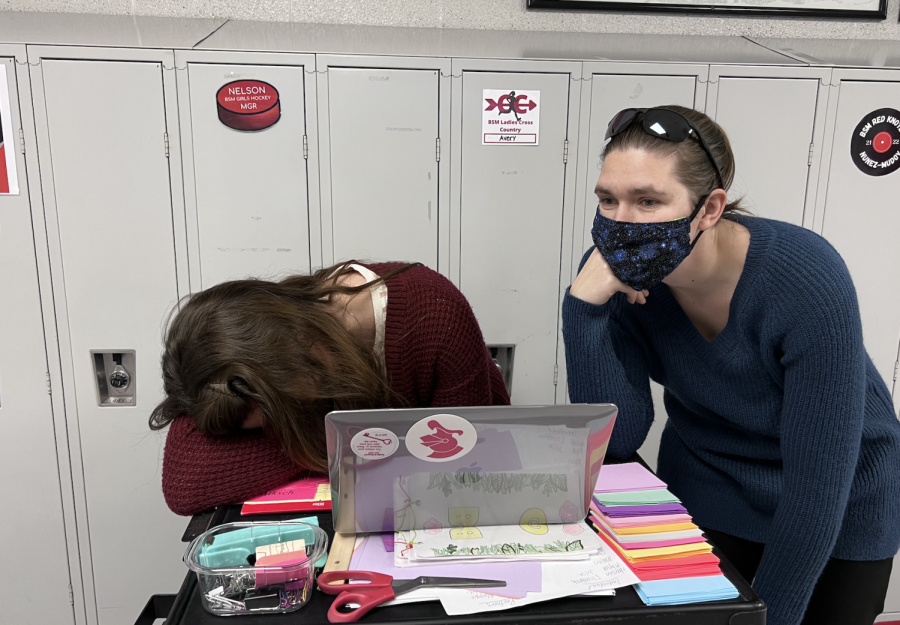Teachers are feeling more burnt out than ever
Teachers are burnt out during a post-covid school year.
These past two years have proved to be very difficult for many students, from mastering the challenge of learning at home to returning back every day nearly a year later. The challenges of students have been advertised across social media and the news. However, recently, we have begun to learn the effects of the covid classroom on teachers. The Star Tribune recently released an article that laid out how covid has also left teachers feeling exhausted and struggling to support students who may have fallen behind. This has not only been a trend nationwide but also in the classrooms here at Benilde-St. Margaret’s.
One of the most difficult transitions that teachers have had to experience this year is the transition from hybrid learning to being completely in person. Some students have difficulty relearning how to properly behave in school causing teachers to repeatedly remind students of the rules. The pushback from students has in turn caused stress and anxiety for some teachers.
“This year has been extremely difficult. Because we’re not only having to continue to learn how to effectively teach in a hybrid-virtual and physically present mode, but also have to deal with students who are not used to having rules because last year with COVID, we didn’t have really any rules and they think that they can do whatever they want whenever they want,” Kaitlyn Miksch, a teacher in the religion department, said.
Aside from the transition from hybrid to in person, there have been many other changes to the school this year. This includes a new block schedule that has students in block periods Mondays through Thursdays and an eight period day on Fridays. The new schedule has had teachers hard at work trying to rearrange their curriculum in order to fit.
“The most difficult part of the year has been keeping up with the new bell schedule and revamping curriculum again to fit. Also, even though things are not at all normal, the standards have returned to normal, so bridging that gap is difficult. How do you hold students to ‘normal’ accountability when you are also trying to teach them how to just be real students again?” English teacher Callianne Olson said.
Despite the administration’s best efforts to implement the pre-covid rules, teachers continue to face opposition. Both teachers and administration look to find ways to reduce the stress on teachers and address behavioral problems in students.
“I think that students could be less combative and can recognize that our roles exists for a reason; they’re not just to make things miserable and I think administrators just recognize more or less how hard this is for teachers, faculty, and staff and honestly I don’t know what they could do to make things easier,” Miksch said.
There are also ways that administrators could try and improve the conditions for teachers. This could be implementing more time for teachers to grade assignments or late starts that not only apply to students but teachers as well. These improvements could help teachers properly manage their stress and be able to focus on making sure students are improving in their class.
“Administrators could give teachers more time to prepare for classes/catch up on grading/take care of mental health. Example: have a late start that is actually a late start for faculty/staff as well,” Miksch said in an email.
As the struggle in the classroom continues, many teachers have begun to consider looking for other jobs, whether that be actively looking for another job or merely thinking about it. “Yes, okay, I haven’t actually physically searched [for other jobs] but I’ve definitely thought about it and I know many others [have as] well,” Miksch said.




































![Teacher Lore: Mr. Hillman [Podcast]](https://bsmknighterrant.org/wp-content/uploads/2025/03/teacherlorelogo-1200x685.png)





